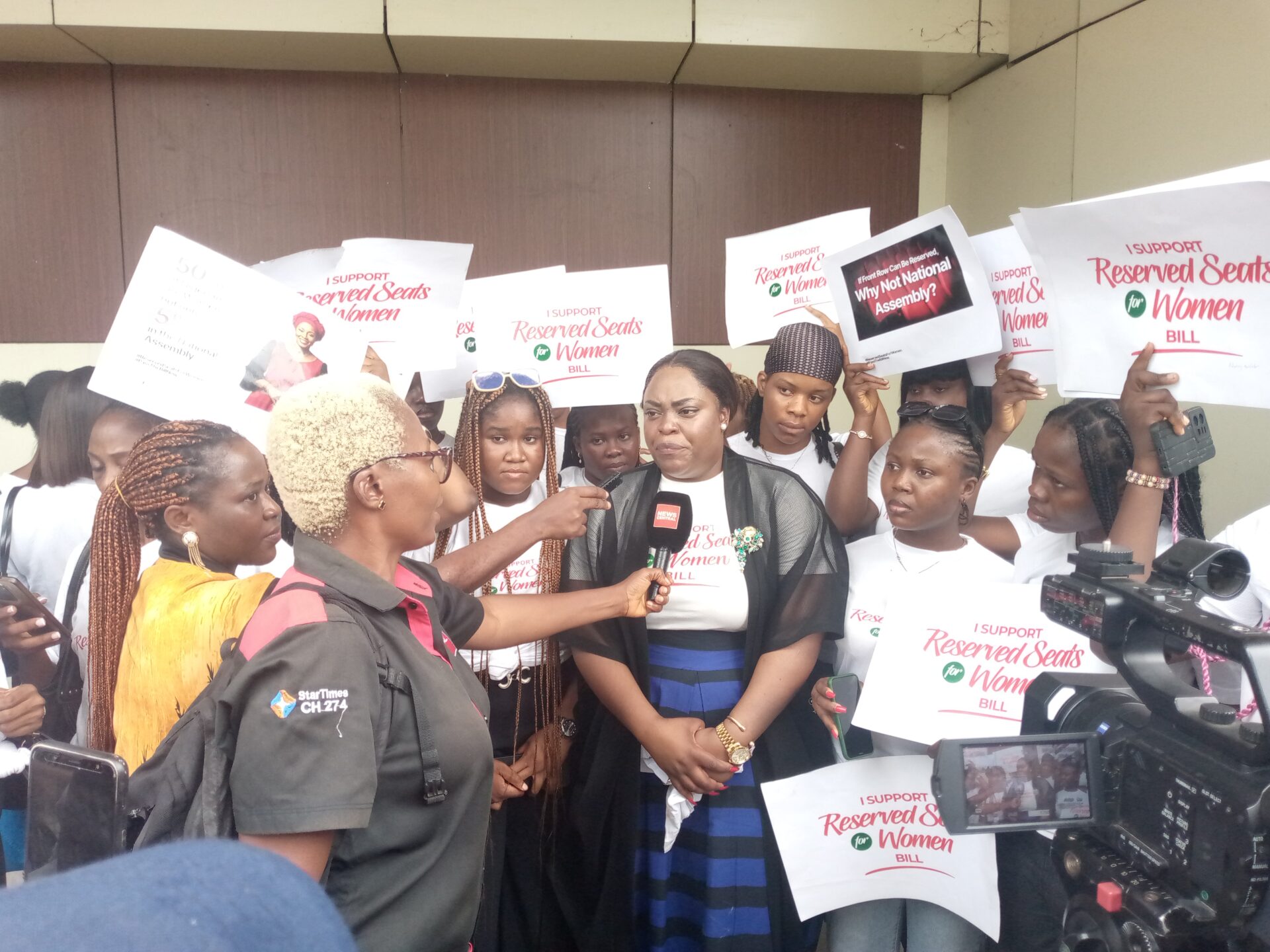The Southeast Zonal Coordinator of the Reserved Seat for Women Advocacy Campaign, Dr. Adaora Onyechere Sydney-Jack has called for the constitutional reservation of 182 additional legislative seats for women at both national and state levels to achieve true gender balance and inclusive governance.
Speaking during the South-East Zonal Public Hearing on the Review of the 1999 Constitution held in Owerri, Imo State, Dr. Sydney-Jack made a passionate appeal for structural reforms that would guarantee increased female representation in Nigeria’s political space.






“When women lead, the nation thrives. Give our daughters a voice,” she declared, stressing that empowering women in political leadership is not just a moral imperative, but a strategic move toward national development and equity.
She proposed the allocation of: 111 additional seats for women in the House of Representatives, 37 seats in the Senate (one per state and FCT), and three seats per State Assembly, totaling 182 reserved seats across the National and State legislatures.
She emphasized that the current level of female representation in Nigeria’s governance structure is alarmingly low and does not reflect the significant contributions of women to the nation’s social and economic fabric.
“This is not about tokenism; it is about fairness, equity, and the future of our democracy. Women constitute almost half of the population but are grossly underrepresented in political leadership. That must change,” she asserted.
She further argued that without intentional legal reforms, women will continue to be sidelined in Nigeria’s male-dominated political landscape. She urged the Constitution Review Committee to adopt the proposal, noting that countries that have implemented similar measures have seen positive transformations in governance outcomes.
Her remarks were met with applause from stakeholders and advocacy groups present at the public hearing, underscoring growing support for gender-inclusive reforms in Nigeria’s evolving constitutional landscape.
The South-East Zonal Public Hearing is part of a nationwide constitutional review process being conducted by the 10th National Assembly, aimed at addressing critical issues such as gender equity, state policing, electoral reform, and local government autonomy.
Contributing, the former Abia State lawmaker and gender advocate, Hon. Blessing Nwagba, has raised alarm over the persistent underrepresentation of women in State Houses of Assembly across the Southeast region of Nigeria.
Citing recent data from the 2023 general elections, Nwagba expressed deep concern over the absence or near-absence of female legislators in most southeastern states, describing it as a setback for gender equity and inclusive governance.
According to the figures, out of a total of 129 seats across the five southeastern state assemblies, only seven to ten are occupied by women — a representation of just about 7–8%.
Hon. Nwagba emphasized that Abia and Imo States have no female lawmakers at all, while Anambra and Ebonyi have just one each. Enugu performs slightly better, with up to four women in its 24-member assembly.
Nwagba further described the situation as “deeply troubling” and a major obstacle to women’s political advancement in the region.
“Women are largely missing from the table where key decisions are made in our states. This lack of representation not only stifles women’s voices but also undermines the development agenda,” she stated.
Nwagba called on political parties, civil society, and state governments to implement affirmative policies that will encourage and support women’s participation in politics.
She further warned that without deliberate efforts to address structural barriers, the Southeast will continue to lag in gender inclusion, despite having a history of strong female leadership in other sectors.
“We can’t continue to celebrate women in business and education while excluding them from legislative processes,” she said.
Nwagba’s call comes at a time when the push for gender parity in Nigerian politics is gaining renewed momentum, especially in the wake of the constitutional amendments that open more room for state-level reform.
Hon. Nwagba has urged stakeholders not to allow this trend to continue, warning that democracy cannot thrive when half of the population is excluded from governance.

























